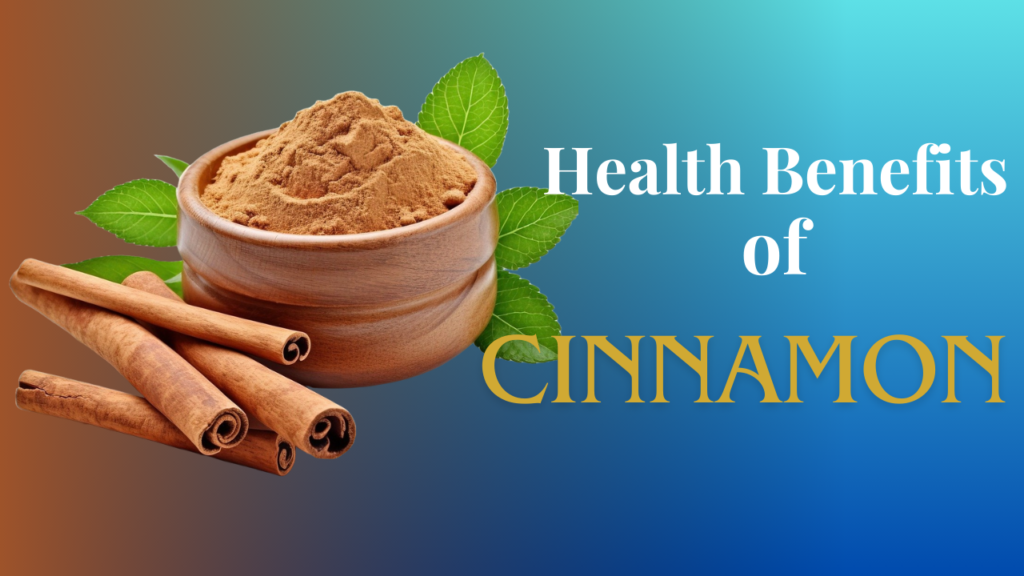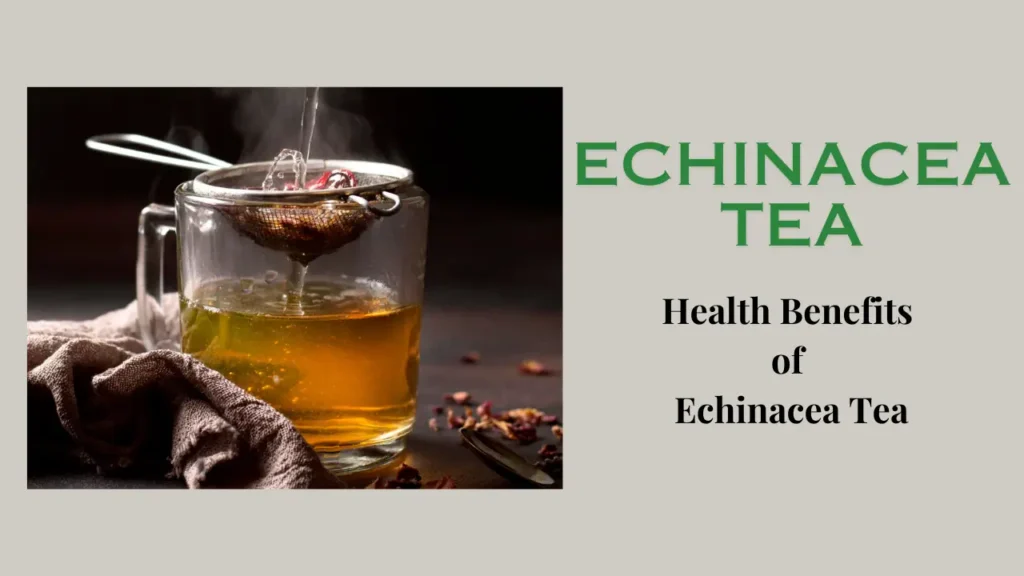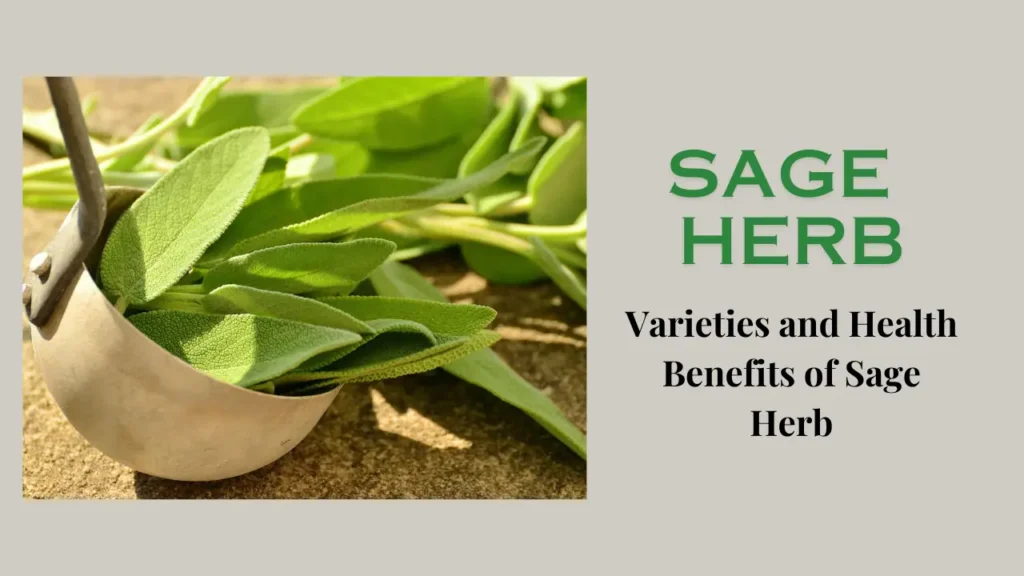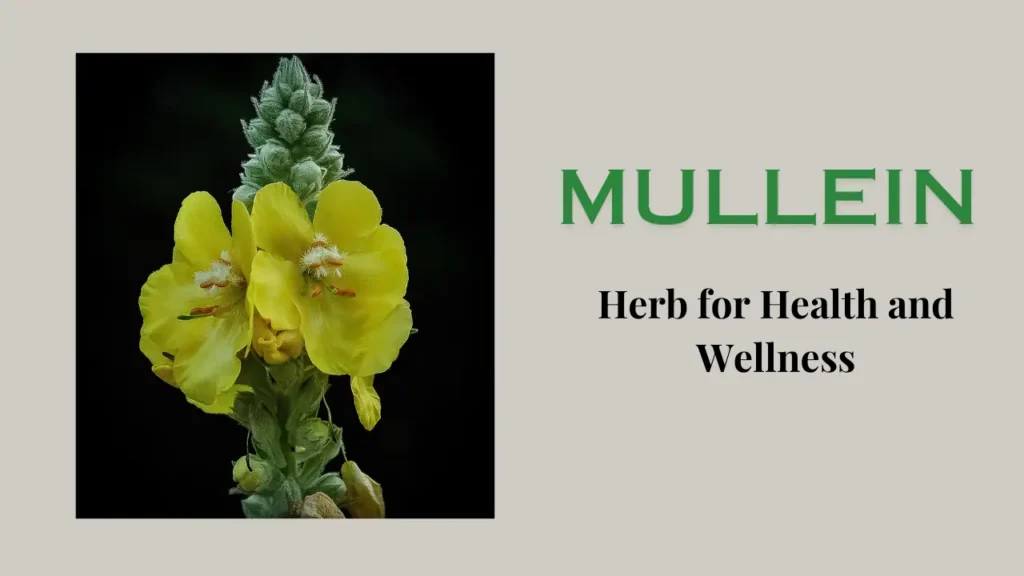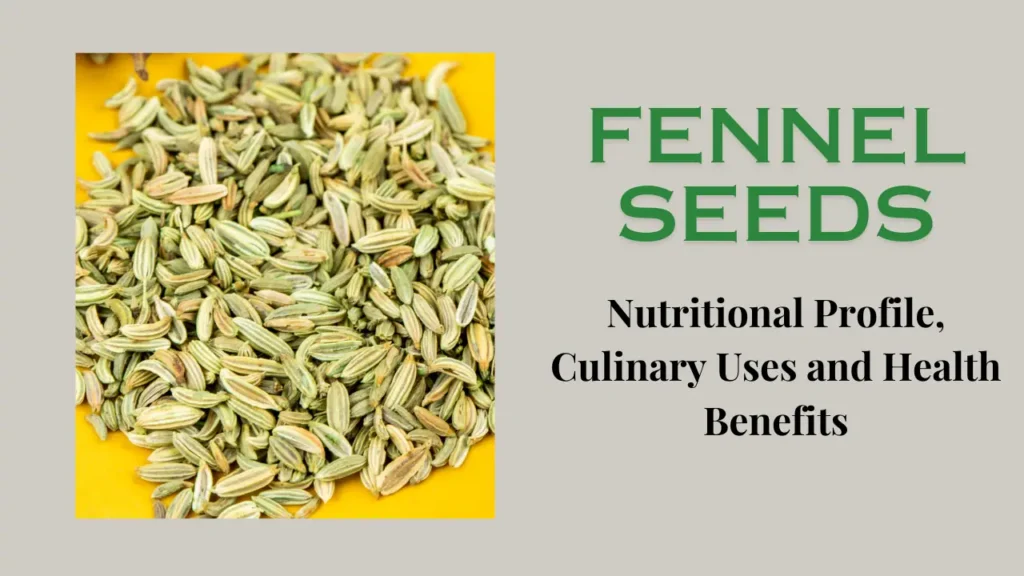Turmeric is Scientifically known as Curcuma longa. It is a vibrant golden spice known for its incredible health benefits and versatile culinary uses. It is used in cuisines around the world due to its warm aroma and distinctive taste. In this article, we highlight the remarkable properties of this herb and learn about its potential health benefits.
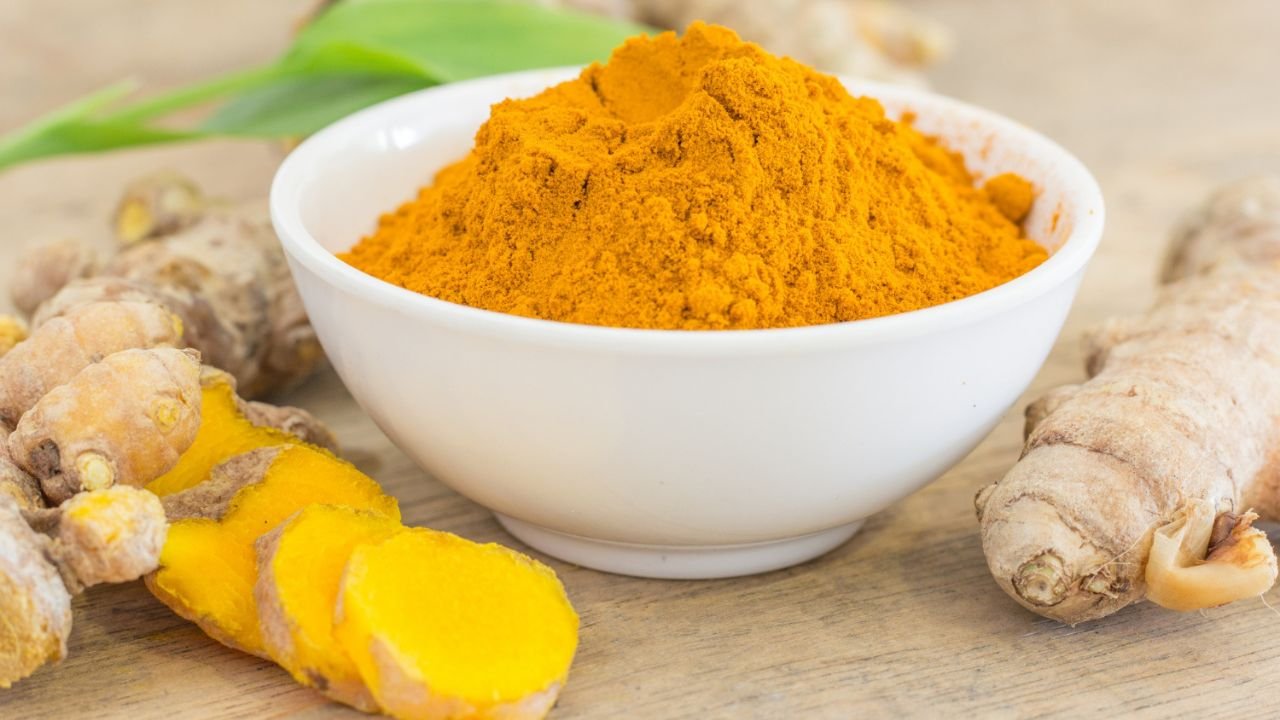
Table of Contents
Origins and Composition of Turmeric
- Turmeric has a rich history dating back thousands of years. It originated in the Indian subcontinent. It has been used for centuries in traditional Ayurvedic medicine and culinary practices.
- Curcumin is the primary active compound in turmeric that is responsible for its vibrant color and powerful health benefits. It has anti-inflammatory, antioxidant, and immune-boosting properties.
Essential Nutrients Found in Turmeric
- Turmeric is a treasure trove of essential nutrients, including dietary fiber, vitamins (such as vitamins C and E), minerals (such as potassium and iron), and several beneficial phytochemicals.
Health Benefits of Turmeric
Turmeric provides health benefits in many ways. Some of these are described as follows:
A. Powerful Anti-Inflammatory Properties
- Curcumin has anti-inflammatory properties that help reduce chronic inflammation in the body, which is caused by many diseases. It inhibits certain enzymes and signaling molecules involved in the inflammatory response.
B. Curcumin's Role in Reducing Inflammation
- Curcumin modulates inflammatory pathways by suppressing the activation of inflammatory genes and reducing the production of inflammatory molecules.
C. For arthritis and joint health
- Several studies show that turmeric and curcumin supplements have anti-inflammatory properties that may reduce arthritis symptoms, such as joint pain and swelling.
D. Strong antioxidant effect
- It is rich in antioxidants. It helps neutralize harmful free radicals in the body, reduce oxidative stress, and protect cells from damage.
E. Neutralizing Free Radicals with Curcumin
- Curcumin acts as a powerful antioxidant that scavenges free radicals and prevents oxidative damage to cellular components.
F. Potential benefits for heart health
- Turmeric may contribute to heart health by reducing oxidative stress and inflammation. Some studies suggest that curcumin helps improve markers of heart health, such as cholesterol levels.
G. Boost immune function
- Turmeric has immunomodulatory properties, meaning it can regulate the immune system’s response and enhance immune function.
H. Effects on the Immune System
- Curcumin helps regulate the activity of immune cells, promote their proper functioning, and enhance the body’s defense against pathogens.
I. In the prevention of colds and flu
- The immune-boosting properties of turmeric help strengthen the immune system, thereby reducing the risk of infections like the common cold and flu.
J. Aids digestive health
- It has been traditionally used to enhance digestive health and reduce various digestive problems.
K. Role of Turmeric in reducing digestive problems
- Anti-inflammatory properties of curcumin have been shown to have anti-inflammatory effects in the digestive tract, potentially reducing symptoms of Irritable Bowel Syndrome (IBS) and promoting gut health.
L. For gut health
- Turmeric has antimicrobial properties and the ability to promote the growth of beneficial gut bacteria, which helps maintain a healthy gut microbiome.
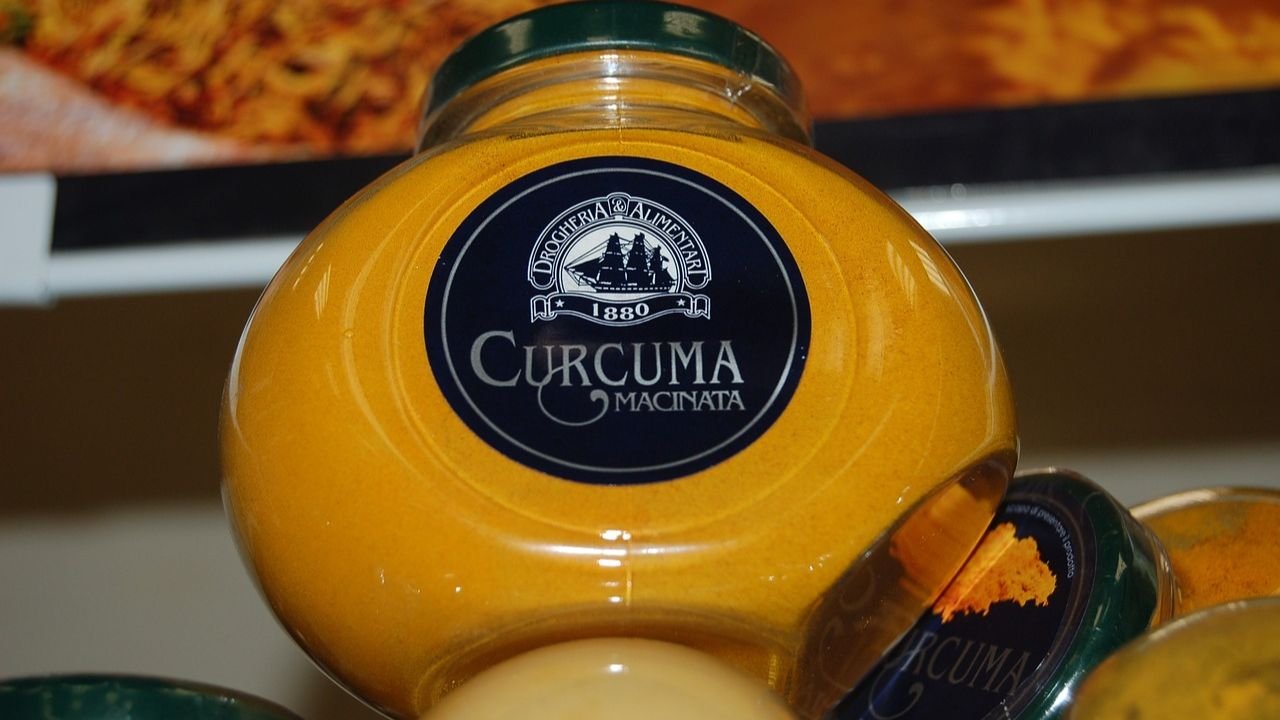
Turmeric as Traditional Medicine
1. Ayurvedic and traditional uses of turmeric
In traditional Ayurvedic medicine, turmeric has been used for centuries to promote overall well-being and address a variety of health conditions. It is believed to balance the doshas (energies) of the body and support optimal health.
2. Cultural significance in traditional healing practices
It holds cultural significance in many traditional healing practices, symbolizing purification, spiritual growth, and auspiciousness.
Read More: Rosemary
Culinary Uses and Tips
Turmeric is used in many ways in cooking. Let us know about it:
- In cooking: Turmeric is a versatile spice that enhances the flavor and color in a wide variety of dishes.
- In curries, rice dishes, and stir-fries: Due to its beautiful golden color and warm, earthy flavor, it is added in a pinch to curries, rice dishes, and stir-fries.
- In marinades and salad dressings: It is used to marinate meat, poultry, or tofu. Add it to homemade salad dressings it adds a delightful twist to the dish.
- Golden milk: Golden Milk is a traditional drink made from turmeric. It is known for its soothing and nutritious properties.
- Traditional Turmeric Milk Recipe: Combine turmeric, milk (or plant-based milk), sweeteners like honey or maple syrup, and spices like ginger and cinnamon in a saucepan. Heat it slowly stir frequently and enjoy it hot.
- Variations and modern adaptations: You can experiment with different ingredients like coconut milk, black pepper, or cardamom to create your own unique golden milk recipe.
- In Baking and Desserts: Turmeric adds warmth and an exotic touch to your favorite baked goods and sweets.
- Adding Warmth to Bread, Cakes, and Cookies: Add a teaspoon or two of turmeric to bread recipes, cake batter, or cookie dough to give them a beautiful golden color and subtle flavor.
- Delicious Turmeric Dessert Ideas: Try adding turmeric to recipes like ice cream, custard, or pudding for a unique and delightful dessert experience.
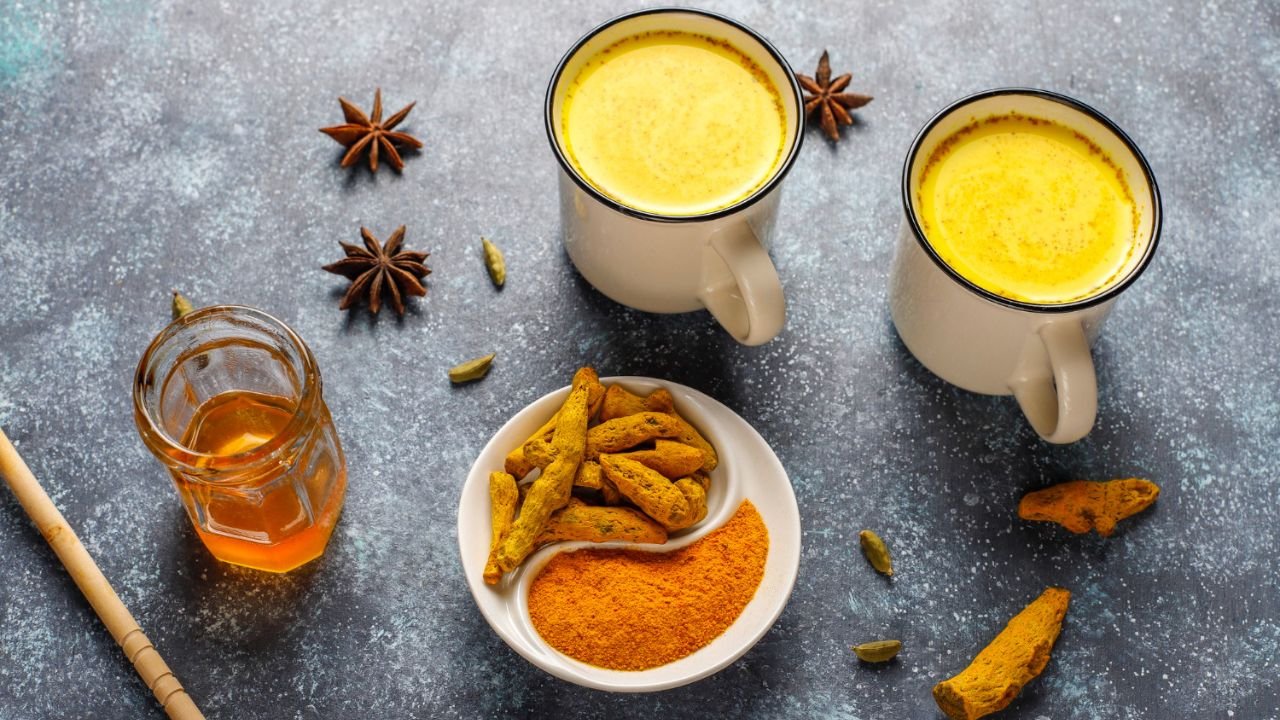
Choosing and Storing Turmeric
a. Fresh vs Turmeric Powder
Both fresh turmeric root and turmeric powder have their own benefits. Fresh turmeric provides a more intense flavor, while turmeric powder offers convenience and versatility.
b. Proper storage techniques for best taste and potency
To preserve the flavor and potency of turmeric, store it in an airtight container, away from direct sunlight and heat. Fresh turmeric can be stored in the refrigerator, while turmeric powder can be kept in a cool, dark pantry.
Safety Precautions and Potential Side Effects
1. Moderate Consumption and Recommended Dosages
- While turmeric is generally safe for consumption, it is advisable to consume it in moderation as part of a balanced diet.
- Recommended dosages vary, but a typical guideline is 1 to 3 grams of turmeric or 400 to 600 milligrams of curcumin per day.
2. Possible Interactions and Allergic Reactions
- Turmeric may interact with certain medications, such as blood thinners. It is best to consult a healthcare professional before consuming turmeric or curcumin supplements, especially if you have any underlying medical conditions or are taking medications.
Conclusion
Turmeric, with its impressive health benefits and culinary versatility, is known as one of the most favorite spices in the world. Whether you want to improve your health or enhance the taste of your favorite dishes, it is known as a golden treasure. By including this in your daily routine, you can improve your health.
Remember, before starting any new wellness regimen, it’s always best to consult with a healthcare professional to ensure it is suitable for your specific needs and circumstances.

